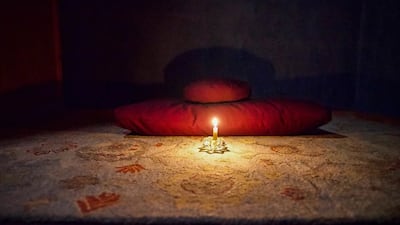NFL quarterback Aaron Rodgers made headlines this month when he emerged from a dark retreat where he had spent four days in sensory deprivation. The Green Bay Packers football player revealed he had gone to Sky Cave Retreats in Oregon in the US to make a decision about his future and “to have a better sense of where I'm at in my life”.
“It’s just sitting in isolation, meditation, dealing with your thoughts. It stimulates DMT, so there can be some hallucinations in there, but it’s just kind of sitting in silence, which most of us never do,” Rodgers said on The Pat McAfee Show.
An ancient practice for the modern age
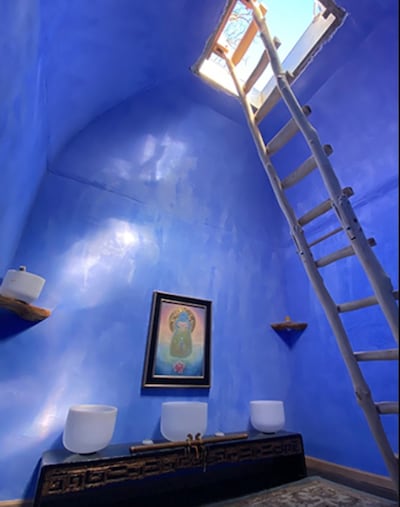
The practice is more spiritual than scientific, but has existed for thousands of years in ancient Egypt, China, India, Greece and the Roman Empire.
It is associated with the Dzogchen and Kalachakra variations of Tibetan Buddhism and Bon, and is intrinsically linked to yoga. Mentioned in the 11th-century Buddhist scriptures The Seventeen Tantras, a darkness retreat was traditionally taken to achieve “bardo”, the transitional state between death and rebirth.
“Being in darkness alters the chemistry of the brain, activating certain parts and deactivating others,” says Dr Saliha Afridi, clinical psychologist and managing director at The LightHouse Arabia. “Neurochemically, there is an increase and build-up of melatonin ― the darkness hormone ― during the initial phase, which eventually tapers off around day three.
"When the body no longer needs it, it starts to produce another neurochemical called pinoline, 5-MeO-DMT, and DMT and this produces a lot of the images or visions coupled with insight, introspection and a sense of 'beingness', or ego-death. Without the ego, you are able to get to your truth and make decisions that are aligned with your authentic self,” explains Afridi.
Facing up to sadness without distraction
These days darkness retreats tend to focus on taking a break from modern life as well as digital detoxing. Retreat rooms are small, simply furnished and accommodate singles, although couples' retreats are also available. While low-light fixtures are provided, pitch-blackness is encouraged.
“For some people, it will feel very disorientating. Others will know deep down their very soul has been waiting for this moment,” says high-performance coach and author Denis Liam Murphy.
“A lot of the time, our improved ability to focus arrives after periods of sensory deprivation, not always during them. Especially at the start, because we have a lot of noise in our heads, we don’t feel comfortable when we are left alone with no way of distracting ourselves."
Murphy believes that a good place to start is "just sitting in a dark room at home, or at a family member or friend's home where you are comfortable, and build from there”.
Afridi, however, says: "People should only do this with a trained facilitator and those who are trauma-informed. Being in a dark room could be very triggering and scary for people, so I would suggest doing some other therapeutic work before trying something like this."
For those ready to take the plunge, though, here are five darkness retreats to try.
Tao Garden, Thailand
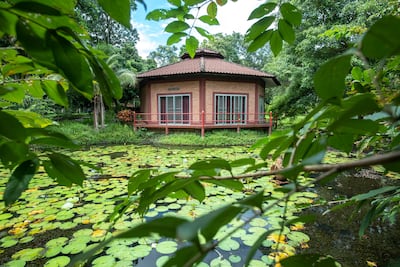
The clinic and spa in Chiang Mai, northern Thailand, has an array of different darkness retreats, courses and workshops. Outside of the solitude time are group gatherings that offer between one and two hours to practise meditation, seek spiritual guidance and have guests discuss their journey with others.
Tao Garden says its darkness retreats allow guests to open themselves up to greater introspection, as well as “give yourself a chance to really meet who you are in the deepest part of yourself”.
Gut-Saunstorf Modern Monastery, Germany
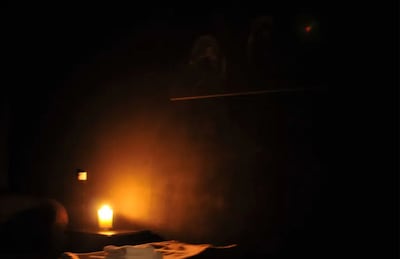
Offering darkness retreats at an intermediate level, visitors to Gut-Saunstorf are guaranteed several days alone in complete darkness as "a way to get closer to your inner self”.
Any form of light in the monastery’s two dark rooms is discouraged, including candles or even electric toothbrushes.
The retreat's focus is on manifestation in a stimulus-free environment, so guests are encouraged to talk to dark room therapists and put the obligations of their lives on the backburner for the five-day duration of their stay.
Darkness Retreat, South Africa
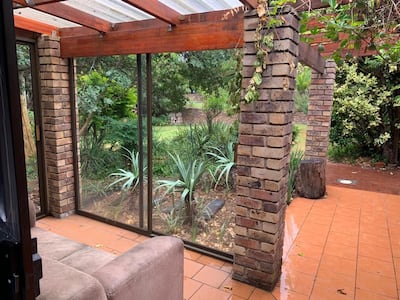
Encouraging a digital detox as well as embracing the darkness, this South African retreat on a gated estate in Johannesburg keeps rooms minimal to be free from distraction. Meals are delivered via a two-way box in the door and devices are not permitted.
Retreats are available for three, four, seven and 11 nights, but seven and 11-night stays are only permitted once guests have previously completed a three or four-night retreat. There is also the opportunity for couples to detox together.
Shamanic Darkness Retreats, UK

This workshop retreat, run by Shamanic Darkness Retreats and held at Florence House in the UK, promises “enlightenment through ceremonial darkness”.
Guests are in complete darkness for the duration of the course as a way to access their unconscious and super-conscious states, and allow creativity and intuition to thrive.
Throughout the five-day course, guests are encouraged to write down their experiences, as well as express themselves through movement and sound.
The Sanctuary by Dark Retreats, Italy
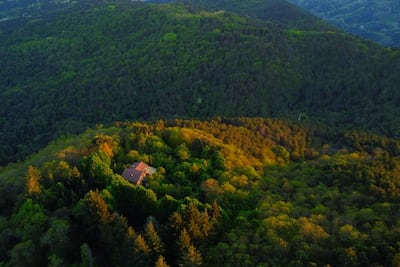
Describing The Sanctuary, its facility in Tuscany as “a world of peace and quiet”, Dark Retreats offers guests the chance to switch off amid the Italian countryside.
Situated an hour from Florence, The Sanctuary also offers yoga and meditation in tandem with a stay in the simply furnished dark rooms.
Wooden furnishings and a compost toilet allow for a pared-back stay, with the focus on reviving physical and mental health.
